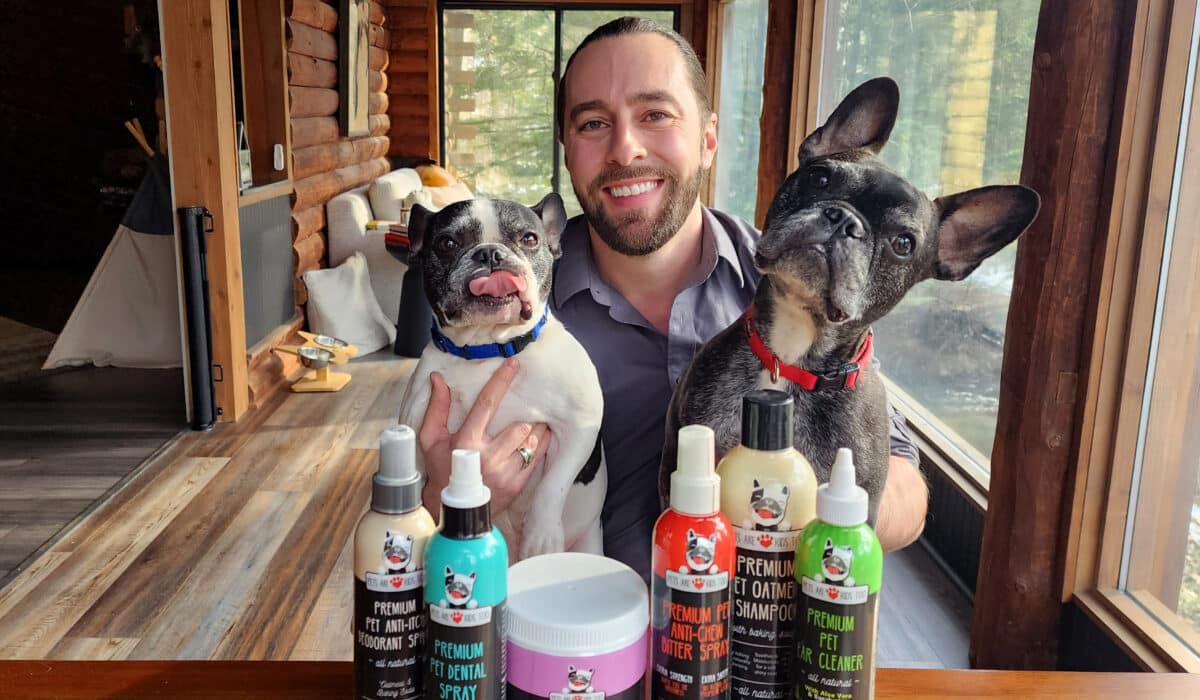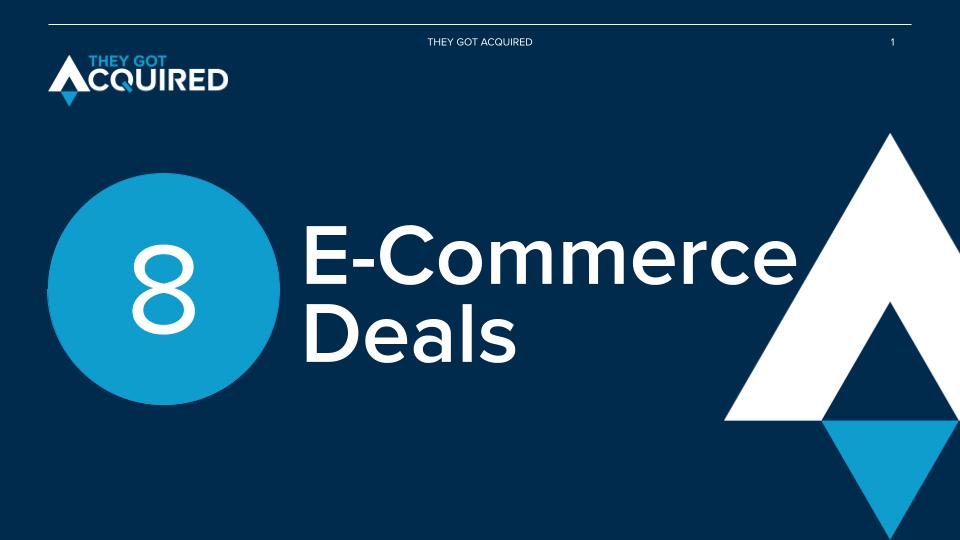Chad Maghielse was in real estate, and he wasn’t loving it. He wanted the freedom to travel without being tied down by his job.
As a real estate agent, “you have some freedom and you pick your own hours, but you’re kind of stuck in one location going to closings and showing homes and all that – and your phone rings nonstop,” he told the Capitalism.com podcast.
That’s when he read a book called “The 4-Hour Workweek” by Timothy Ferriss. Around that time, he also learned about Amazon private label, a business strategy that involves selling a product manufactured by another company under your own personal brand name on Amazon.
Inspired by the needs of his two beloved French bulldogs, Brock and Beast, Maghielse decided to start a boutique pet supplies company. Using only $3,000 he put on a credit card, he founded Pets Are Kids Too.
Three years later, he sold it for a 7-figure payday. He says just about anyone can do what he did if they put in the work: “If you have enough money to buy cigarettes and you have a laptop, you can make a million-dollar business,” he said on the podcast.
How Maghielse built Pets Are Kids Too through charity work
Pets Are Kids Too sells a roster of healthy pet products like oatmeal pet shampoo, anti-chew dog training spray, anti-itch spray, calming treats, ear cleaners, chews for joint care, and even dental spray for dog breath.
Maghielse (pronounced “mah-GILL-see”) founded the e-commerce company with a mission: to help pets. The idea is that pets are family members too, and they deserve to be treated as such.
Beyond selling pet products, he put his money where his mouth was, routinely donating proceeds from sales to GoFundMe accounts for pets that needed medical care.
“A big part of Pets Are Kids Too was our charity mission that raised money for individual dogs with cancer, so they could get the treatment they needed,” Maghielse told They Got Acquired.
He turned his customers into his co-advertisers by getting them behind the company’s charity mission. When customers bought his products, he’d ask them to send in a photo of their pet with the product they’d purchased. When they did that, he would donate a portion of their sale to a pet with cancer, and email them back a photo collage with their pet and the pet their purchase helped. He called it “Pets Helping Pets.”
“Very often, those customers would then post that image on social media, driving traffic to our brand,” he told us. It also fostered a connection between the brand and its customers.
He faced one big challenge that’s common for e-comm companies: Managing cash flow while growing the business.
“As you scale, your inventory orders get bigger and more expensive,” he said. “So even though you’re making more money, you’re spending more money.”
He found the book “Profit First” by Mike Michalowicz to be helpful. And a licensed sub-book called “Profit First For E-Commerce Sellers” by Cyndi Thomason was even more relevant, he found.
Based in Michigan, he didn’t hire a team, making do with one virtual assistant. To market his products, he used Amazon ads by the company Quartile. Also, he spent a lot of time and effort getting the products’ packaging right. For a company logo, he turned to the website 99 Designs.
Knowing when it’s time to sell the company
But Maghielse didn’t want to be in the pet products business forever. He wanted to sell his business for enough money so he could live on the proceeds, travel as he wished, and invest in real estate and in other people’s businesses.
He started the business in 2017. By 2019, he had grown it to a point where he started looking for a buyer. He estimated that Pets Are Kids Too was pulling in $1.5 to $2 million a year at that point. The biggest sellers: dental spray and anti-itch oatmeal shampoo.
Most of the company’s sales were on Amazon and the pet supplies website Chewy instead of on the Pets Are Kids Too website. That was by design, as Pets Are Kids Too was launched as an Amazon-oriented business.
The sales breakdown was about 70% Amazon, 25% Chewy, and 5% “other,” including his own site, he said.
To sell the business, Maghielse signed on with brokers Coran and Leanne Woodmass of The FBA Broker, who specialize in e-commerce businesses.
He also did something specific to sweeten the deal: “One thing I did to enhance the desirability of my business was pre-source the next two products that the new owners could launch,” he said.
The products he had in mind were dog tear stain remover and waterless shampoo spray for dogs. “I already had a list of potential future products for myself to launch if I chose not to sell the business,” he said.
He used this as a carrot for buyers. “I had heard that many people who buy businesses stall in terms of growth because they don’t know what to do next,” he told us. “I tried to eliminate that ‘buyer fear.’”
He also focused on strengthening the company’s EBITDA, sticking with strategies that were dependably profitable and not branching out into any new experiments in marketing and advertising to keep his costs down.
In 2020, about three years after he started it, the business sold to Pearl West Group, a Vancouver-based firm that buys and grows Amazon businesses, for 7 figures.
The most challenging part of selling his business? There were a few handoff hurdles because the group that bought it was a Canadian entity, and they had some issues transferring his Amazon account and the company’s bank account into their control. But it all worked out in the end.
Another tricky part? Taxes. If Maghielse had to give a piece of advice to a founder who wants to sell their business, it would be, “Plan your tax strategy ahead of time.”
“I largely used real estate bonus depreciation to offset my taxes from the sale of my business,” he said. “Some of those tax laws have changed. But taxes will likely be your biggest expense when selling a business. Plan ahead how you can minimize that expense.”
The next chapter
After the sale, Maghielse spent some well-earned downtime playing video games and reading lots of books.
Now he’s primarily an investor and coach. He teaches entrepreneurship classes, and he also does some one-on-one entrepreneurship coaching in the “dog niche” through Some Dog Millionaires (a play on the movie title “Slumdog Millionaire”).
“We live in a really, really cool time with the internet and e-commerce and Amazon and Facebook ads and everything,” Maghielse said on the Capitalism.com podcast. “The perfect storm is here, where just about anybody with the work ethic and connection to the internet can do what I’ve done.”



